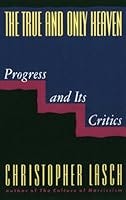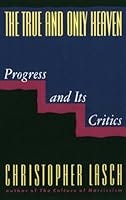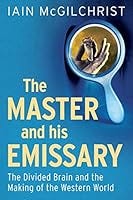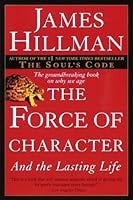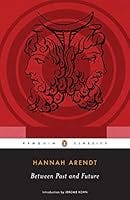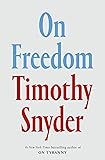The Major Political Writings of Jean-Jacques Rousseau
Jean-Jacques Rousseau, John T. Scott (Editor) from The Social Contract
This transition from the state of nature to the civil state produces a very remarkable change in man, by substituting justice for instinct in his conduct and by giving his actions the morality they previously lacked. Only then, when the voice of duty replaces physical impulse and right replaces appetite, does man, who until then had considered only himself, see himself forced to act on the basis of other principles and to consult his reason before listening to his inclinations. Although he deprives himself in this state of several advantages he derives from nature, he gains such great advantages from it—his faculties exercised and developed, his ideas enlarged, his feelings ennobled, his entire soul so greatly elevated—that if the abuses of this new condition did not often degrade him beneath the condition he left, he ought to be endlessly thankful for the happy moment that forever tore him away from it, and that, from a stupid and limited animal, made an intelligent being and a man.
Humans are social and have always been social. Any social contract theorist who believes that we humans were ever completely asocial and solitary are deluding themselves, but I don’t believe that Rousseau or any of the other major social contract theorists believed this. But they are writing about more complex and sophisticated social relationships that can rightly be labeled political. And thus, the value of their insights, even if only as philosophical fables or thought-experiments.
The time-binding semantic circuit is not based on such steady-state positive feedback. It is a mechanism of what cyberneticists and biologists called positive feedback. It does not return to a steady state, but constantly seeks a new equilibrium at a higher energy level. (Negative feedback returns to a fixed point, like a thermostat. Positive feedback seeks a moving goal, like a guided missile.)
If you’ve not read RAW, you’re in for a wild & entertaining ride.
In The Legitimacy of the Modern Age, published in Germany in 1966 but only recently translated into English, Hans Blumenberg subjects the “secularization thesis,” as he calls it—the notion that progressive ideology represents a secularized version of the Christian millennium—to an all-out assault. According to Blumenberg, the idea of progress originated not in Christian eschatology but in the seventeenth-century revolt against the prestige of classical art and learning and in the scientific revolution, which provided mankind with a new mastery over the conditions of its existence and suggested by its example that the production of knowledge is cumulative and irreversible.
An interesting contention.
Looking back on the history of the twentieth century from our own vantage point, we see it as a series of decades and generations, each with its own label: the lost generation, the red generation, the silent generation of the forties and early fifties, the beat generation, the Age of Aquarius (or was it merely the Pepsi generation?), the me generation, the generation of the yuppies.
Baby Boomers—he forgot us Baby Boomers! Now, with aging, we’re more than (or beyond) “the Age of Aquarius” or “the Pepsi generation.” Did Lasch not approve of us? Many don’t. But then we are legion and varied. It’s always a matter of painting with a broad, impressionist brush, these generational labels.
A Secret History of Consciousness
With a poet's intuition and a scientist's scrutiny, Goethe had hit on the crucial insight that human consciousness was not, as Descartes and those who followed him believed, a passive mirror reflecting an external world whose “laws” determined it with ironbound necessity; consciousness, rather, was a cocreator of that world.
Where the right hemisphere can see that metaphor is the only way to preserve the link between language and the world it refers to, the left hemisphere sees it either as a lie (Locke, expressing Enlightenment disdain, called metaphors ‘perfect cheats’) or as a distracting ornament; and connotation as a limitation, since in the interests of certainty the left hemisphere prefers single meanings.
The left hemisphere is so . . . limited. And so left-hemisphere thought, as McGilchrist describes it.
Time is not only destructive; it toughens as well as weakens. Time lasts; it keeps on going and going and going and therefore is no enemy of age or of old. But time is indeed destructive to youth, which it eats away and finally stops dead. So when we hear of the corruption caused by time, we are listening to youth speaking, not age.
A useful insight for us older folks.
Real conversations require utter concentration, not texting on the side when you are in a café with someone. That is because travel is linear—it is about one place or singular perception or book at a time, each one etched deep into memory, so as to change your life forever.
Books & travel pair perfectly. Enjoy places—actual, literary, and artistic—as one would a fine wine: you savor it and explore the flavors. And other persons? The ultimate experience.
Hannah Arendt, introduction by Jerome Kohn
Although events appear sequentially in the hindsight of history, when historians relegate a specific event to its place in a sequence, as if it could be fully comprehended as an effect of preceding and a cause of succeeding events, they explain away its political significance. For Arendt this results in the absence of political understanding in philosophies of history, whether Hegelian or Marxian, which is among the principal things she encourages her readers to think about in the second essay included in this volume, “The Concept of History.” (Jerone Kohn in his introduction.)
To which I say “Amen!”
Isolation and algorithmic targeting summon the predictable Körper [mere body]; people meeting one another rediscover the Leib [living persons. On the Maidan [Kiev, Ukraine] over the next few months [2014] , new and durable friendships were made. People founded civil society organizations that led to habits of cooperation and trust that would endure when Russia invaded Ukraine first in February 2014 and then in February 2022.
This is why autocrats fear crowds that are not strictly controlled.
Carr kept on insisting that history was, and is, A Science. He could not free himself from the Objective-Subjective terminology. In What Is History? he wrote: “It does not follow that, because a mountain appears to take on different angles of vision, it has objectively no shape at all, or an infinity of shapes.” But the more “objective” our concept of the shape of the mountain, the more abstract that mountain becomes.
How about “large-minded” (M. Novak) rather than “objective.”






